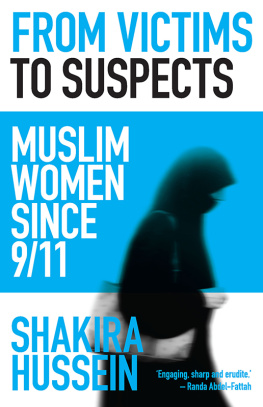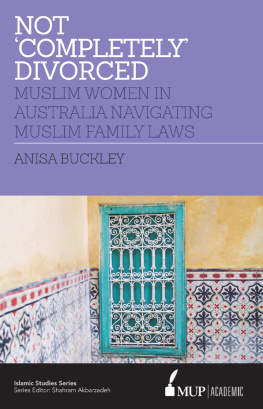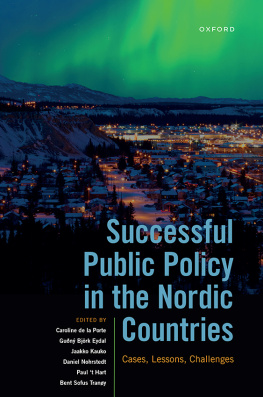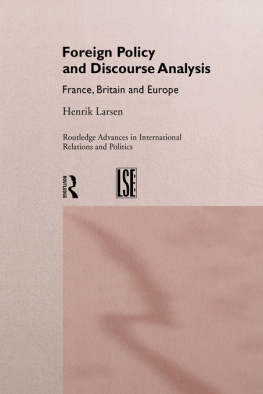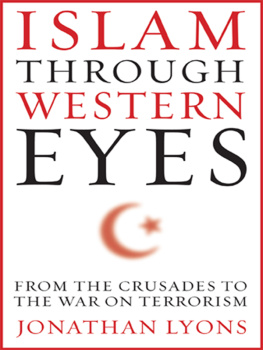VEILED THREATS
Representing the Muslim woman in UK public policy discourses
Naaz Rashid
First published in Great Britain in 2016 by
Bristol BS2 8BB UK Tel +44 (0)117 954 5940 e-mail
North American office: Policy Press c/o The University of Chicago Press 1427 East 60th Street Chicago, IL 60637, USA t: +1 773 702 7700 f: +1 773-702-9756 e:
Policy Press 2016
British Library Cataloguing in Publication Data
A catalogue record for this book is available from the British Library
Library of Congress Cataloging-in-Publication Data
A catalog record for this book has been requested
ISBN 978-1-4473-2517-8 hardcover
ISBN 978-1-4473-2519-2 ePub
ISBN 978-1-4473-2520-8 Mobi
The right of Naaz Rashid to be identified as author of this work has been asserted by her in accordance with the Copyright, Designs and Patents Act 1988.
All rights reserved: no part of this publication may be reproduced, stored in a retrieval system, or transmitted in any form or by any means, electronic, mechanical, photocopying, recording, or otherwise without the prior permission of Policy Press.
The statements and opinions contained within this publication are solely those of the author and not of the University of Bristol or Policy Press. The University of Bristol and Policy Press disclaim responsibility for any injury to persons or property resulting from any material published in this publication.
Policy Press works to counter discrimination on grounds of gender, race, disability, age and sexuality.
Cover design by Policy Press
Front cover image: Ernesto Costanzo
Reader's Guide
This book has been optimised for PDA.
Tables may have been presented to accommodate this devices limitations.
Image presentation is limited by this device's limitations.
Contents
Acknowledgements
Many people have been involved in supporting me through the research process and the eventual publication of this book. First and foremost I am grateful to the research participants for their time and generosity. I admire many of them for the work they do with such passion and commitment and hope they will not find this book too critical. Many thanks to Laura Vickers and the staff at Policy Press; and thanks also to Ernesto Costanzo for producing the cover design which was adapted from an original image by Sam McDonald.
I would like to thank Suki Ali for her support, enthusiasm and guidance throughout the doctoral process and LSE for providing research studentships which helped fund my studies. I am also grateful to Claire Alexander for her unstinting generosity in supporting early career academics working in the field of race. Thanks also to my PhD examiners Avtar Brah and John Solomos for their positive feedback and encouragement. I am also deeply grateful to the anonymous reviewer for their enthusiastic comments about this book.
I have benefitted greatly from being part of various early career academic networks such as REPS and NYLON with colleagues at LSE and Goldsmiths. Academic comradeship and camaraderie has come from Des Fitzgerald, Ajmal Hussain, Malcolm James, Hannah Jones, Helen Kim, Christy Kulz, Sanjiv Lingayah, Manal Massalha, Nabila Munawar, Victoria Redclift and Christine Scharff. Special thanks go to Malcolm James for sharing the everyday conviviality and angst of PhD student life. At the University of Manchester I would like to thank Wendy Bottero, Vallu Sivamohan, Bethan Harries and Katy Sian for making the commute worthwhile. I am grateful to the Department of Sociology at the University of Sussex for making it possible to finish this book. I would also like to thank the MSc ladies (not all of whom were) at Birkbeck College. Discussions with Kalpana Wilson, Joelle Maulguet, Monique Charles and Christine Ru Pert-em-Hru felt like coming home. I would like to extend particular thanks to Yasmeen Narayan for encouraging me to embark on doctoral studies; the thought had genuinely never occurred to me previously. For intellectual sparring beyond the academy, many thanks to Michael Thomas, Hardip Begol and Sergio Palacios who, despite our many disagreements, have helped keep my mind keen and alert through our many protracted but always stimulating debates. I would also like to thank my students, particularly those at LSE, for their interest in my work.
Much love goes to Howard Doble for his unwavering practical, intellectual, and emotional support throughout every stage of the process. Words alone cannot do justice but I am grateful to him (and our feline friends) for keeping our home a place of comfort and calm during otherwise difficult times. Finally, I would like to dedicate this book to the memory of my much loved and deeply missed parents, Anowara Begum and Mohammad Abdur Rashid. I hope you would have been proud.
About the author
Dr Naaz Rashid is currently a Teaching Fellow at the School of Law, Politics and Sociology at the University of Sussex. She previously worked in central government and has held positions as a Research Associate in the Sociology Department at the University of Manchester and as a Graduate Teaching Assistant at the London School of Economics and Political Science, where she completed her PhD in 2013. She has also previously studied at Birkbeck College and SOAS at the University of London and at the University of Cambridge. Her research interests include race, gender, religion, urban studies, and social policy. She has had her work published in Ethnic and Racial Studies , as well as in Open Democracy and The Guardian .
PROLOGUE
Veiled threats?
I was standing in the courtyard garden of the V&A with a group of school girls. They were from a girls school in east London and had been taken there as part of a local authority funded project. I had met the organiser, Sophia, through one of my research interviewees. She was a member of the Three Faiths Forum, an organisation set up in 1997 to encourage friendship, goodwill and understanding between people of different faiths (Judaism, Christianity and Islam). The girls had done their morning's activities, a worksheet that needed to be completed whilst looking at the exhibits, and were outside having their lunch. It was a beautiful sunny day and they were glad to be outside. As we sat on the grass, I chatted to one of the volunteers and around me the girls made the most of a day off school. Boisterous, although not rowdy by any means, they drew attention from other visitors to the museum, principally, I imagined, as all the girls were dressed in their school uniform of black jilbabs . Suddenly, someone in the group suggested that they should all have their photo taken. The group assembled in makeshift lines. As the designated photographer shouted cheese, a number of the girls struck flamboyant cat walk poses. As various girls held their arms and legs akimbo and balanced precariously on the grass, brightly coloured trainers and jeans could be seen beneath, their scuffed Adidas bags slipping off their shoulders.
The poses were perhaps unsurprising given that the school trip was part of a project called Faith and Fashion. As exuberant as the girls were, as much as they appeared to enjoy the day, and as passionate as the organisers were about the value of what they were doing, the question nonetheless remained. What could an event looking at Faith and Fashion possibly have to do with combating terrorism?
In January 2008, Hazel Blears, Secretary of State for the Department for Communities and Local Government (DCLG) under the Labour administration, announced initiatives to empower Muslim women. She encouraged Local Authorities to use some of the 70m funding they had been given to prevent violent extremism to empower Muslim women. The Preventing Violent Extremism or Prevent agenda was a policy response to the London bombings of 2005 and the threat of home-grown Islamist terrorism.



